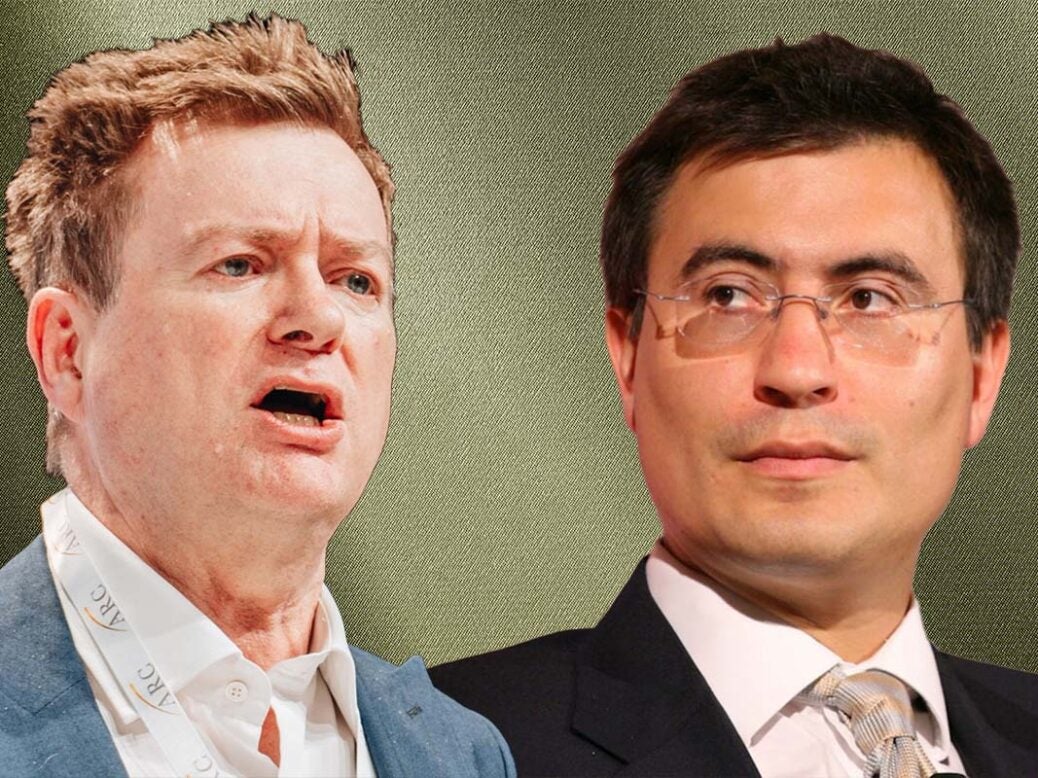
Wealth managers have a key role to play in boosting British philanthropy amid a drop in donations by ultra-high-net-worth individuals in the UK, according to an expert in the field.
The Sunday Times Giving List, published yesterday alongside the Sunday Times Rich List in association with Charities Aid Foundation, ranks the UK’s biggest givers by the proportion of overall wealth given to, or generated for, charity.
[See also: G.P. Hinduja tops Sunday Times Rich List as billionaire numbers fall]
Hedge fund boss Sir Paul Mashall, 56, a founder trustee of the Ark children’s charity and chairman of its academy chain, tops the top 100 list by giving away £145.1 million of his £875 million net worth in the past 12 months, or the equivalent of £2.8 million a week.
Philanthropist and activist investor Sir Chris Hohn, founder of TCI, who topped the list last year, is ranked fourth in 2024 when donations are calculated as a percentage of wealth, but is still the most generous individual overall with £600.9 million in donations.
However, there has been an overall drop in the amount donated. The top 100 philanthropists collectively pledged £3.2 billion to charity personally or through their charitable foundations or businesses, which marks a decrease of £208 million compared to 2023.
[See also: Melinda French Gates resigns from Bill & Melinda Gates Foundation]
'It is a challenging time for charities as they face rising demand for their services alongside higher costs, so it is concerning that the Giving List this year indicates that giving is down,' warned Neil Heslop, chief executive of Charities Aid Foundation (CAF). 'We must find new ways to foster a renewed culture of giving in the UK.'
Joe Crome, a Spear's Top Recommended adviser and head of business development at CAF, agreed it is a 'concerning' development but explained the data might not paint a full picture of the state of philanthropy in the UK.

‘The list focuses on publicly declared giving, predominantly through foundations,’ he explained to Spear’s. ‘While this traditional route to giving is well-known and not going anywhere, in the past decade we’ve seen a significant rise in the use of donor advised funds (DAFs). For many of our clients and their families, DAFs are becoming the preferred long-term charitable giving vehicle – they are straightforward and impactful, no matter the scale of their ambition.’ Such vehicles keep details of giving private, meaning an individual could be giving more than is publicly reported.
However, Crome explained more could be done to encourage more giving, including introducing a government-back national strategy for philanthropy and charitable giving, and fostering a shift in attitude among HNWs towards greater transparency around philanthropic work. Chart-topper Sir Paul is among those who prefers not to discuss his philanthropy publicly.
‘Unlike American philanthropists, British donors often prefer to stay anonymous,’ he continued. ‘I believe the more we talk about philanthropy and its impact, the more others will be inspired to give.’
[See also: Rory Stewart on how a novel idea changed global giving]
He also stressed the important role wealth managers and private advisers can play in boosting donations.
‘Our research shows that more than half of 18-34 year-old HNWs (57 per cent) and 49 per cent of 35-54 year old HNWIs believe an adviser could help with their philanthropy, yet more than one in five financial advisers do not know how to offer wealthy clients support on philanthropy, and almost three-quarters do not include the topic as part of their initial fact find with clients.
‘We would like to see philanthropy added to CPD and industry qualifications for financial advisers to ensure that private client advisers are able to better meet the needs of their clients. Forward-thinking advisers looking to provide a holistic service to the next generation would be amiss to ignore this rich topic of engagement.’
He added: ‘Over the next 30+ years trillions of pounds is projected to shift between generations. We want to ensure the younger cohort inheriting this wealth are committing to strategic giving and to do that they need to see it in action, to learn about and understand its importance.’






